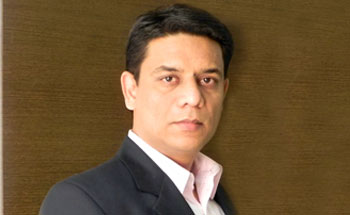Neeraj Kalyan: Statutory Licensing is to Copyright what Emergency or Martial Law is to Democracy

T-Series president Neeraj Kalyan shares his views on the Copyright Amendment Bill with Radioandmusic.com.
The amendment in the Copyright Act could have been a welcome step if the film maker’s representations were heard. It seems obvious here that most of the arguments of film makers have not been considered and dealt with. The film makers believe that the Committee has pre-judged the issue before making its report. It is therefore felt that if some of the contemplated amendments do come into force, it will – in no uncertain terms – jeopardize the interest of not only the film makers who invest heavily in the making of films but also many of the upcoming talent including new authors, music composers, depriving them of opportunity to show case their talent, create mass unemployment within the film industry, and result in an inevitable breakdown of the entire film industry.
The film makers have not objected to the rightful share of the authors at all. We are in fact, committed to work out a win-win model for the authors, ensuring that their work is protected and monetised so that the authors receive royalties during the entire life span of the rights but it is extremely unfortunate that with the process followed for amending of the existing copyright bill, the film producers are feeling marginalized.
Some of the key issues in the proposed Copyright Amendment Bill are as follows;
1. Inability of the Producer and the author to enter into a contract-of-service / commissioned contract is taken away thereby impairing the freedom of contract [Amendment - Proviso to Section 17 (e)].
2. Effective restriction on author’s right to assignment copyright for future works royalty rights thereby jeopardizing the ability of the authors to monetize their rights [Amendment – First and Second proviso to section 18 (1) and Section 19 (9)].
3. Amendment under section 31 D – Statutory licenses for broadcasting of literary works, musical works and sound recordings
While, the amendments on the one side is ensuring royalties for the authors but on the other side the bill is restricting revenues for film makers and authors by imposing Statutory Licensing to the broadcasting sector. Is this fair?
As per the recent media reports, while the HRD Ministry had presented to the Union Cabinet the proposal to completely drop the proposed Section 31D related to Statutory Licensing in the amendments to the Copyright Act, 1957, however, it seems the broadcasters lobby has prevailed upon the Union Cabinet to retain the said section 31D on Statutory Licensing in the Copyright Act amendments and extend the Statutory Licensing regime to broadcasters including Radio & Television. This will seriously impact our already skewed revenue pie and will be the final nail in the coffin for the industry.
This regulation imposed in the proposed amendment bill will take away the freedom of the content owner’s to trade. It means that the content owners will have no option then to license music rights to the broadcasters. Till recently, the Statutory Licensing was limited to the Government owned networks (namely AIR & Doordarshan), however, post these changes, even the private broadcasting networks are treated on par with the Government owned networks.
Unlike the past, the Broadcasting sector in India now is owned, managed and controlled by large media conglomerates with cross holdings by profit making bodies who want to enlarge their profits at the cost of survival of authors, composers, producers and music labels. The broadcasters may therefore exploit the provisions of this new section 31D to avoid freely negotiated voluntary license arrangements thereby causing unprecedented losses to the film & music industry, whereas the same broadcasters are free to charge advertising rates at their own will depending upon their TRP / RAM ratings.
It will grossly disturb the equilibrium in favour of such broadcasters who would disturb the competitive market and abuse the process of law for indirect subsidies through the Copyright Board while there is no control over costs incurred in producing or acquiring copyrights by film & music industry. The Govt by bringing this Amendment intends to control and squeeze the revenue pipe of film & music industry to favour already profitable broadcasters. This unconsidered intervention by State in existing free market arrangements and free market structures will have highly unpredictable negative consequences for film & music industry.
This is taking away the bread & butter from the copyright owners who will be at the mercy of the broadcasters or the copyright board. It will also be sunset of free trade and is completely against the principles of natural justice.
Though the Government has made amendments to the copyright act on the pretext of the laws prevailing in other countries, however, as far we are aware that the Statutory Licensing regime is not applicable in any other country and thus why only Indian Govt. is so keen on this draconian provision which will take away our right to negotiate a fair license fee for our copyrighted works. A mail received from the IFPI, the International Federation of the Phonographic Industry to this affect, confirms that the Statutory Licensing to broadcasters is unprecedented, and conflicts with the exclusive rights granted to creators in India. It could also find India in breach of its international obligations, as it represents an overly broad limitation on exclusive rights.
We appreciate that the copyright law balances the rights of public at large to have access to such works that have been circulated in public. But if the provisions of Statutory Licensing are passed as proposed the entire concept of exclusivity of control of copyright in the owner/author as guaranteed by the act shall be defeated and the economic rights that it seeks to provide shall be unfairly withdrawn. Statutory Licensing is to Copyright what Emergency or Martial Law is to Democracy.
The provision of Compulsory License as it stands today in the Act already empowers the Copyright Board to after holding proper enquiries issue compulsory license in favour of a complainant who has been unreasonably denied a voluntary license by a copyright owner.
It is therefore strongly recommended that the proposed Statutory Licensing to the broadcasters be completely dropped and if there is a need for any compulsory licensing then it should only be limited to the Government broadcaster who would serve the best interest of the public (like the Prasar Bharti i.e ALL INDIA RADIO and Doordarshan). This is the only way that the copyright owners can freely trade the rights as per market conditions. This is an established practice even in the case of cricket match broadcast controlled by BCCI wherein BCCI allows feed to Prasar Bharti at concessional rates considering public interest but at the same time they are free to negotiate the license fee with other TV channels like Sony or Star at market driven rates.
In conclusion, the new regime of 'Statutory Licensing' to broadcasters appears to be discriminating against the copyright owner/author. The Govt. of India should adopt a very constructive approach to achieve its actual objectives through enforceable and effective legislation striking an appropriate balance between the interests of all concerned and not just extend undue advantage to the broadcasting industry controlled by large media houses at the cost of already suffering film & music industry. It may be preferable to allow the law of contract, of competition and of copyright to evolve through judicial decisions and through the development of new business models in response to changing technologies, than to risk un-researched amendments to the law.














